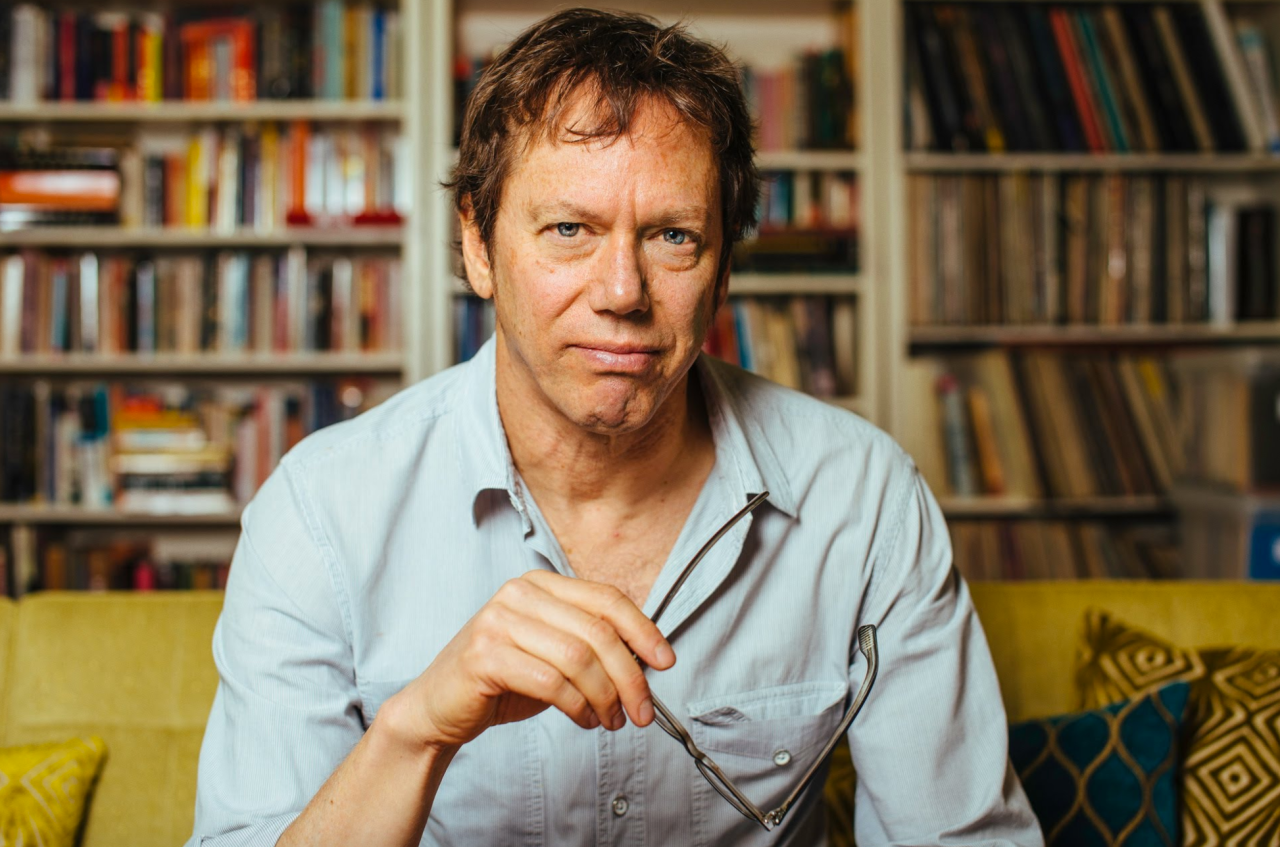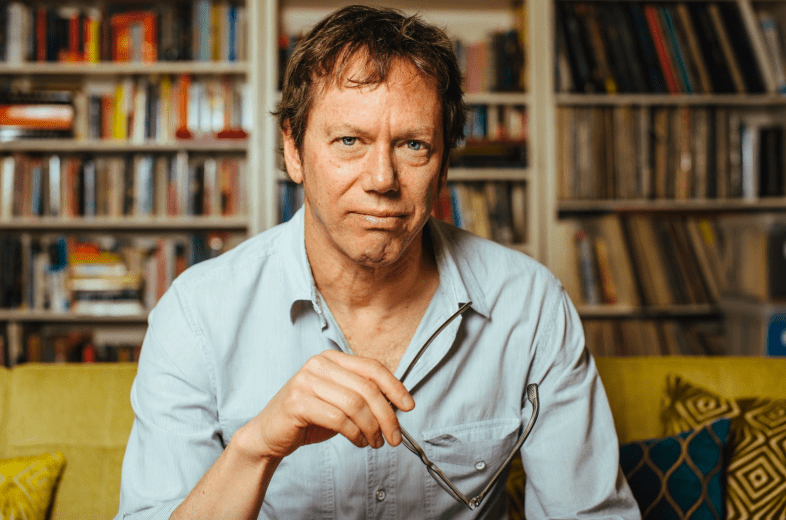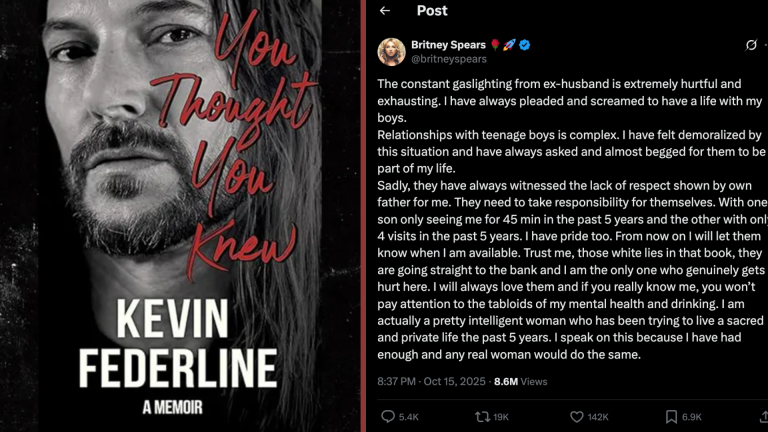
23 Lessons I Learned From Robert Greene On Strategy, Mastery And Power
“Powerful people,” he writes, “impress and intimidate by saying less. The more you say, the more likely you are to say something foolish.” I think of this law when I am about to tweet, when I am considering an email, when I am coming up with marketing materials. Less is almost always more.
By ![]() Ryan Holiday
Ryan Holiday

I first met the author Robert Greene when I was a sophomore in college. A few weeks after that meeting, I was not a sophomore anymore. In fact, I was no longer in college.
Last month, I wrote of a few of the lessons I’d received in the last ten years from another author, Tim Ferriss. As essential as the things I’ve learned from Tim were, they pale in comparison to what I’ve learned from Robert—a man who has shaped my career and my worldview. His books alone—The 48 Laws of Power, The Art of Seduction, 33 Strategies of War, The 50th Law, Mastery—would have been enough to change my life. His behind the scenes work for powerful politicians, CEOs and athletes are the stuff of legend. But as luck would have it, I didn’t just have to rely on legend. I was absurdly fortunate to have the opportunity to work for a time as Robert Greene’s apprentice and in the years since, on the marketing of his books. I’ve also, at almost every major juncture or decision in my life, been able to call him and ask for his advice.
Most people won’t have this kind of opportunity or access. Not everyone is even going to take the time to read his unusual, challenging books (they’re missing out). They’re not going to get tailored advice or get to watch him up close. So I’ve tried to recreate the next best thing: a list of the most essential things someone can learn from Robert Greene and pass them on to you.
1. Alive Time or Dead Time? Early on in my career I had a pivotal conversation with Robert. I was working full-time at a really good job but planning my next move, saving my money and thinking about what I might do next. I told him I wanted to write a book one day, but I wasn’t sure what, how or when or what about. He told me, Ryan, there are two types of time: Dead time—where we are just waiting and Alive time—where we are learning and active and leveraging. And then he left it there with me to decide which I would choose. I wrote Alive Time or Dead Time on a notecard and for years it was on my wall—so I would never forget. I squeezed every ounce of life out of that job and it set up the career I have now.
2. Be Amoral in Your Assessments, Be Ethical In Your Actions The criticism of Robert’s works is that they are sociopathic or unscrupulous. Of course, anyone who has ever met Robert Greene knows that he is an incredibly kind, generous and principled person. Is that a contradiction? Absolutely not—in fact, it’s actually the underlying message of all his books. Robert taught me how to look at the world objectively. When I see an unethical person, I don’t get upset. I just see who they are, I study what they are doing. Then when it’s my turn to make the right decision in my own life, I make it. Robert’s books are like a biology textbook. They explain what various species do. But as humans we’re free to make our own choices in our own lives—and we should choose well (as he has done).
3. Objectivity Is Everything Again, it’s not about seeing the world negatively—it’s about removing that impartiality we project on it. When I interviewed Robert for The Daily Stoic’s website, he told me about his favorite passage from Marcus Aurelius. The one about “seeing roasted meat and other dishes in front of you and suddenly realizing: This is a dead fish. A dead bird. A dead pig.” As he explained to me: “I’ve tried to bring that across in my writing. For instance, to deconstruct things like power and seduction and to see the actual elements in play instead of the legends surrounding them.”
4. Be Better Than People Expect That whole thing about Robert not being the evil person that some people assume after reading about his books? I like that. When you create public work, people naturally make assumptions about you. I think your goal as a creator should always be that the real you is surprisingly better than the assumption they make. You should be nicer, funnier, smarter, more open-minded, cooler, more informed. It’s a lot of work to do this—but it’s impressive.
5. Make Your Way to the Inside Robert’s metaphor for mastery is being on the inside of something. When we start a new sport, when we get our first job, when we approach a field we haven’t yet studied, we are on the outside of. But as we put in the work, as we familiarize ourselves with every component, as we develop our intuitive field, we eventually make our way to this inside. This is a metaphor from Robert I think about constantly. I don’t want to be an outsider on anything I do, I want to make my way inside it.
6. Take Notes Like a Pro I’ve already written about my notecard taking process that I learned from Robert when I was his research assistant. I still remember the day I went to his house and he showed me the thousands of notecards he’d assembled for the 48 Laws of Power and walked me through how to do it myself. All I can say is that since learning it about 10 years ago, it has totally transformed my process and drastically increased my creative output. It’s responsible for helping me publish five books in five years, (along with other books I’ve had the privilege of contributing to), write countless articles published in newspapers and websites, send out my reading recommendations every month, and make all sorts of other work and personal successes possible.
7. Make Time for Strenuous Exercise From Robert I also learned that swimming is a great productivity tool. Why? Because it requires total isolation: no music, no phone, no possible interruptions. Just quiet, strenuous exercise. I’ve had some of my most productive brainstorming sessions in the pool. Even at 57, Robert swims 1.25 miles 3-4 times per week and does some other form of exercise on the other days. It’s why he is so productive as a writer and thinker. The other part of this is: The harder a time you’re having with a project, the tighter the deadline—the more time you have to make for exercise and the harder you have to push yourself while doing it.
8. Learn The Art of Patience In 2009, I wrote an article about stoicism on Tim Ferriss’s website. This was probably my biggest stage as a writer at that point—and then a few months later, a small publisher emailed me to ask if I wanted to turn that article into a book. It was as if everything I had hoped for was coming together. But I wanted to check with Robert first—did he think I should do it? He told me he was happy for me but actually suggested I turn the book offer down. He said that I was still learning and improving as a writer—that my life experiences were accelerating and that the book would be better each day I waited. He was teaching me to be patient. It’s easier to be patient when nothing is happening though. To turn down a life changing opportunity? That’s the real test. And he was right. (Ultimately, I published The Obstacle Is the Way 5 years later and its success is something I owe to his lesson.)
9. OK Is Not Good Enough As a research assistant, I would come up with an example that I thought fit what he was looking for. Robert would review and go, “Yeah I think this makes sense, but I know there’s something better.” At first, I didn’t get it—wasn’t the whole point to finish this book? He wanted an example that worked and I found one. But it’s that sense of perfectionism that is the difference between a mediocre book and a timeless one. Today, I use that as one metric to judge a project: Did I throw away some pretty good stuff? If I didn’t, it means I’ve settled.
10. It Starts By Wanting to Create A Classic One time I asked Robert, how do you make these books that last so long. What’s the secret? His answer was simple: “It starts by wanting to create a classic.” It doesn’t happen on accident. It has to be intentional.
11. Forget ‘Let Others Do All The Work, Take All The Credit’ Ruthlessly stealing the work of the people beneath you is one of the most controversial laws of power. It’s a reality of the working world. We think of the President’s inspiring speeches, not his speechwriters. We think of a celebrity’s good looks, not their stylists or their makeup artists. So you’d think it would be tough working for Robert—in fact, Robert is incredibly generous. I mean, even the fact that I am able to write this article and talk about these things is proof. Robert’s graciousness is another lesson I learned and one I try to follow now with my own research assistant (Thanks Hristo Vassilev, you made this article possible.)
12. Avoid Tactical Hell Robert defines tactical hell as place where we are reactive to other people’s demands and needs, driven by emotions, and never thinking ahead. The antidote to tactical hell is strategy. We must be strategic in everything we do.
13. Crush Your Enemy Totally One of the most prominent leaders of the Haitian Revolution, Toussaint L’Ouverture, once replied to an opponent: “If you have a hog that eats chickens, you may put out its one eye, you may put out its other eye, but it still will eat chickens whenever it can.” Asked what it means, he replies: “It means that the wicked are incorrigible.” It is a less intimidating summary of Robert Greene’s law: “Crush Your Enemy Totally.” You realize that sometimes in war total annihilation is what is required—you can’t afford making enemies for life. But the better lesson can be this: Avoid finding yourself in situations where you put yourself in a position to create lifelong enemies—reacting emotionally in situations is easy. Self-restraint? Not so much.
14. Be a Private Person I met Robert’s longtime girlfriend last week for the first time. We’d known each other for almost ten years. I’d been to his house while she was there! But he’s a private person. He separates his work from his personal life. I respect that.
15. Plan All The Way To The End If you don’t know where you’re trying to end up, no strategy will get you there. Robert taught me to consider the end. I know what the cover of my books looks like in my head, I know what reaction I want it to provoke, I know how many copies I want it to sell and I know the life I want to lead because of it. I’m not guessing. I know. And I’ve planned.
16. Always Say Less Than Necessary My favorite law in The 48 Laws of Power (and the one I remind myself of the most) is basically: Shut Up. “Powerful people,” he writes, “impress and intimidate by saying less. The more you say, the more likely you are to say something foolish.” I think of this law when I am about to tweet, when I am considering an email, when I am coming up with marketing materials. Less is almost always more.
17. Master On-And-Off Thinking Creative breakthroughs are the result of tension. You have to ratchet it up and then switch to something else. Then, as Robert writes, “with the feeling of tightness gone, the brain can momentarily return to that initial feeling of excitement and aliveness, which by now been greatly enhanced by all our hard work.” When people say they work for 8 hours in a row, I know they’re either lying or being inefficient. You have to go off and on, hot and cold. It’s where the magic comes from.
18. It’s All Material From Robert I learned a wonderful, freeing phrase: “It’s all material.” Everything bad that happens, everything frustrating or delayed or disappointing—all of it can be fuel for a book. It can teach you something that helps you improve your business, it can become a story you pass along to a friend. Don’t get upset about the things that happen. See it as collecting data. Observe it. Turn it into material.
19. Shun Distractions If you call Robert in the middle of the day, he won’t answer. Because he’s working. That might seem like a minor accomplishment but any writer knows how much discipline that takes. You’re sitting there, the words aren’t coming and you’re begging for any excuse to stop. Robert’s discipline is an inspiration for me and I use it as a model. I don’t often meet it, but I try. I remember he once compared the noise my phone made and how quickly I picked it up to check to a “rat in an experiment.” There’s a reason I have turned off all alerts on my phone. I’m not nearly as productive as Robert is, but I am getting better.
20. It Takes Time Robert published his first book at age 39. It didn’t hit the New York Times Bestseller list until more than a decade later. I got lucky in the sense that some of my success came when I was very young. But when I get impatient, I think about Robert’s journey. I remind myself that the next level might require waiting as long as he did, that I need to be patient. That things take time. Things that rush into this world are often rushed right out. Play the long game.
21. The Even Keel Is Essential I have not once seen Robert get upset or yell. Not during the chaos at American Apparel, not at his publisher, not at internet trolls, not at me for messing up. He is imperturbable. That doesn’t mean things don’t bother him. From what I understand, he is particular and likes things a certain way. But none of this can make him lose his cool. It’s this discipline that it is the first step to a truly strategic mind.
22. Concentrate Your Forces This is one of the laws of power, but I actually learned it by watching Robert. When you write a successful book, you get all sorts of new opportunities: speaking, consulting, starting your own company, doing the whole guru thing. But if you notice, he hardly does any of that. He just writes really really really great books. This is not a coincidence. He has decided to say no—a lot. I say yes to more (I’m younger and I have a slightly different personality), but I always use him as a model: Concentrate most on the one thing you do that’s special. Ignore the rest.
23. Cultivate a Monk-Like Existence When I first started working for Robert, he drove a very old Volvo. His house is nice but I’m sure he could afford a bigger one. I remember when Robert bought himself a nice car. This was a guy that’s sold millions of books, I thought, what gives? A couple years later, we had lunch and he mentioned that it had a total of like 9,000 miles on it. He had barely driven in it. Then I realized that what’s important to him is to sit at his desk and do his writing. Part of what makes him such a great writer and craftsman is the monk-like existence he has cultivated. He doesn’t need to go do a speech in Cleveland to pay for his speedboat. He doesn’t care about your fancy restaurants or his zip code. He cares about his work.
**
This is all a fraction of what I’ve learned from Robert, and hopefully a fraction of what I will learn, but still—if that were it, it would be enough to make me endlessly indebted.
If you apply more than a few of these lessons you will be too. ![]()











